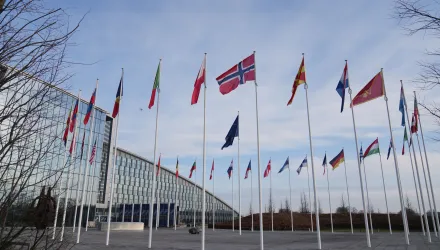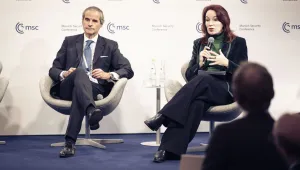
During their tenth annual meeting in Reykjavík in March, the U.S.-Russian Elbe Group of retired senior military and intelligence officials discussed a range of issues and agreed on specific recommendations to help improve U.S.-Russian bilateral relations. The group, which maintains one of the few channels of communications currently open between the two countries, issued a joint statement that recommends specific actions by their respective governments that will increase dialogue across the spectrum of national security establishments, including military, intelligence, diplomatic, and other relevant organizations.
The Group agreed that as the two most powerful nuclear states, the U.S. and Russia bear a special responsibility to negotiate and abide by agreements that ensure strategic stability. Both sides expressed concern that nuclear weapons treaties are being ignored, eliminated, or are at risk of expiring.
Changes in the existing system of strategic stability have accelerated, they agreed, further undermining a mutual sense of security. In addition, regional confrontation has increased, use of military forces has grown, nuclear capabilities are being modernized, and the development of military and dual use non-nuclear technologies is expanding.
The Elbe Group members agreed to urge their respective governments to take a number of specific actions. Following are a few of their joint recommendations.
- Strategic stability—Issue instructions to resume contacts and interaction between the national security and military establishments.
- Stability in the Baltic and Black Sea region— Significantly reduce the activity of operational and combat training of the armed forces of NATO and Russia near the border between Russia and the NATO countries. Resume the practice of the parties to invite military observers to maneuvers and exercises of the armed forces of NATO and Russia.
- INF Treaty—Preserve the fundamental provisions of the Intermediate-Range Nuclear Forces Treaty (INF) for the future.
- START 3—Immediately start negotiations on the extension of the Russian-American START-3 treaty.
- Cyber—Mutually agree to cease hostile use of the Internet in the social and political spheres; begin joint discussions and cooperation on combating cyber criminals and use of the Internet by Islamic extremists.
- Countering terrorism in Syria, Near and Middle East—Create a broad international antiterrorist coalition in the Middle East region. Deconflict operations against ISIS in Syria as a basis for broader efforts to combat terrorism. To prevent the revival of ISIS, the military-to-military and special services’ cooperation between the two countries should be resumed.
- On the Arctic—Resume the practice of working meetings between the Chief of the General Staff of the Russian Armed Forces and the Chairman of the Joint Chiefs of Staff of the U.S. Armed Forces to discuss cooperation in the Arctic zone.
The Elbe Group members said in their statement that they are convinced that the search for mutual interests and an understanding of intentions and actions of the two countries should be key components in contemporary relations between Russia and the United States. With that in mind, the Elbe Group intends “to promote in myriad ways the expansion of the dialogue between the various structures of civil society, academic and business circles, the expert community, and various power structures, including the expansion of dialogue in inter-Congressional/Parliamentary relations.”
"Elbe Group Provides Blueprint for Improved U.S.-Russia Relations." Belfer Center Newsletter, Belfer Center for Science and International Affairs, Harvard Kennedy School (Spring 2019).



